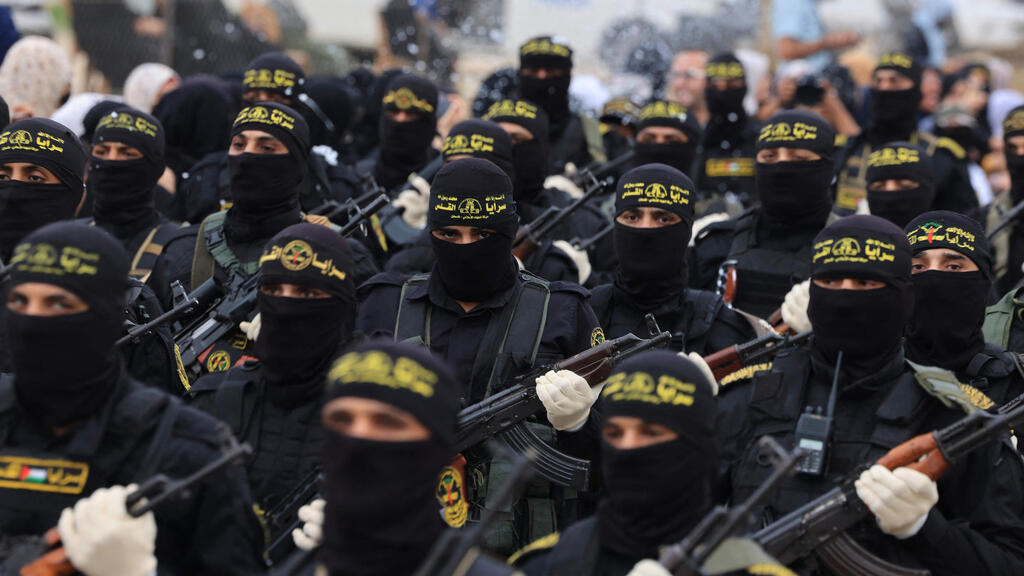The Islamic Jihad movement has resumed rocket fire into Israel from Gaza, following an Israeli airstrike last week that targeted the group’s senior officials, including Abu Hamza, the spokesman and rocket commander. The strike, which took place in the Nusseirat area of central Gaza, significantly weakened the organization, but it has since returned to active operations.
Since Israel resumed airstrikes in Gaza, Islamic Jihad has launched rockets towards Israel, primarily targeting the Gaza periphery. This contrasts with Hamas, which has fired rockets into areas such as the Gush Dan region. While Hamas has claimed responsibility for the deadly attack on October 7, Islamic Jihad was also involved in the assault on the Gaza periphery.
Israeli forces had previously separated the two groups, avoiding direct strikes on Hamas while targeting Islamic Jihad in several operations. The Islamic Jihad group also has been implicated in abducting and holding Israeli hostages, with conditions differing from those in Hamas-controlled areas.
A source close to the group in Gaza explained that, while Islamic Jihad had suffered substantial losses, it has continued to recruit fighters and maintain its operations, especially in the northern Gaza Strip. The group has several weapons and rocket laboratories in the area.
On Monday, the group claimed responsibility for rocket fire toward the Hatzor military base and the Gaza perimeter. This follows previous rocket attacks targeting Sderot, Zikim and Netiv HaAsara. The group has maintained coordination with Hamas in launching rockets and has no intention of halting its activities as long as Israel continues its strikes.
Despite its reduced strength, Islamic Jihad’s military capabilities remain intact, as evidenced by the recent hostage release ceremonies. Senior figures from both Hamas and Islamic Jihad participated in these events, and meetings between their leaders have been frequent.
Get the Ynetnews app on your smartphone: Google Play: https://bit.ly/4eJ37pE | Apple App Store: https://bit.ly/3ZL7iNv
The group's leadership includes senior figures such as Ziad al-Nakhala, who left Syria after the fall of Bashar Assad’s regime, and Khaled al-Batsh, who has evaded Israeli security forces since last year. Other prominent members include Muhammad al-Hindi and Ahmed al-Modallal. Before the war, the group relied heavily on smuggling through tunnels or crossings, but now it focuses more on local production of rockets and explosives in Gaza, particularly in the northern region.




